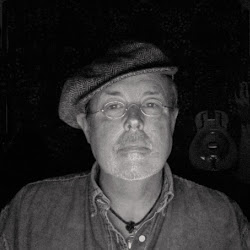
Here poet DICK JONES gives The Passionate Transitory one of its most fascinating interviews yet. One of the highlights of our first issue was Dick's magnificent tour de force Manhattan Transfer – Going Downtown, an effervescent beat-rap-jazzy jive of a poem set in the streets and subways of New York City. We'd love to hear you give a live reading of this some day, Dick!
Can you remember the first poem you ever wrote?
It was called "Death of a Soldier".
And how old you were when you wrote it?
I was 15, at boarding school in Yorkshire, and had just discovered the war poets.
And what it was about?
It was deep in the shadow of Rupert Brooke’s "The Soldier" and it related my harrowing experiences on the Western Front. If style and form came from Brooke, substance came from Henry Williamson, whose Great War novels I was reading at the time.
Name a favourite poem or two . . .
Random choices: "The Song of Solomon", "Dart" by Alice Oswald, "Howl" by Allen Ginsberg, "An Arundel Tomb" by Philip Larkin, "Searching for Lambs" by John Burnside, "Le Petit Salvie" by CK Williams…
. . . and a few of your favourite poets.
Pauline Stainer, Walt Whitman, John Burnside, Allen Ginsberg, Peter Redgrove, RS Thomas, Philip Larkin, Amy Clampitt, Louis MacNeice, WB Yeats, Alice Oswald . . .
Do you talk about poetry with your friends or is it a secret part of your life?
Poet friends, yes. Other friends, rarely. Poetry is, in many ways, the art that dare not speak its name. If you were at a dinner party and the stranger next to you turned around and asked, "And what do you do?", and if you replied, "I’m a musician/dancer/potter/sculptor/painter", you’d have their immediate attention. But if you said, "I’m a poet", you’d get rabbit in the headlights and an early loo visit. But I’m currently trying to flog a book, so I’m a bit less coy about bringing the subject up at present!
Do you write poetry for yourself, or for others, or for both?
For me. To resort to cliché, the poems write themselves through me. I don’t sit at my desk and decide to bang off a swift poem. I only write when a word, a phrase, an image impinges on my consciousness enough to rise above the general hubbub. So they come about as a result of a shift in the signal-to-noise ratio and generally they emerge fairly slowly. The trick is to stay attentive and not try to force the pace, but always, always have the notebook nearby.
Is it important to you if your poems get published or not?
It’s important to me that others read them. Once they’ve passed beyond the initial word-to-phrase-to-verse stage and have their own momentum, I get excited by the process and am intrigued to see how it may resolve. When a poem gets as close as ever they do to being finished, I want to share it with others, at the least to see whether what has been communicated to me has value and meaning for others too.
Do you think poetry is important in the global scale of things or just a pleasant, indulgent hobby like needlework or trainspotting?
Poetry is vital. It takes language to places where language in any other form would have no place. Freud said, "Everywhere I go I find that a poet has been there before me." It’s the voice of our deepest selves, and its prevalence in every great culture and the survival of each culture’s verse into the present is all the evidence we need for its continuing place in our hierarchy of priorities.
What does poetry really mean to you?
I need to write it. I don’t entirely know why, but it’s the case. If I tried not to when it’s on the move, it would be like trying to suppress some compulsive tic.
Is poetry better than sex?
I am the master of tantric writing. A single poem can take me years to complete. If I could extend that function of creativity to sex then Sting would be an also-ran! As to expressing a preference, Victor Hugo is (probably apocryphally) credited with the mournful post-coital moan, "There goes another novel." So far so good in that respect.